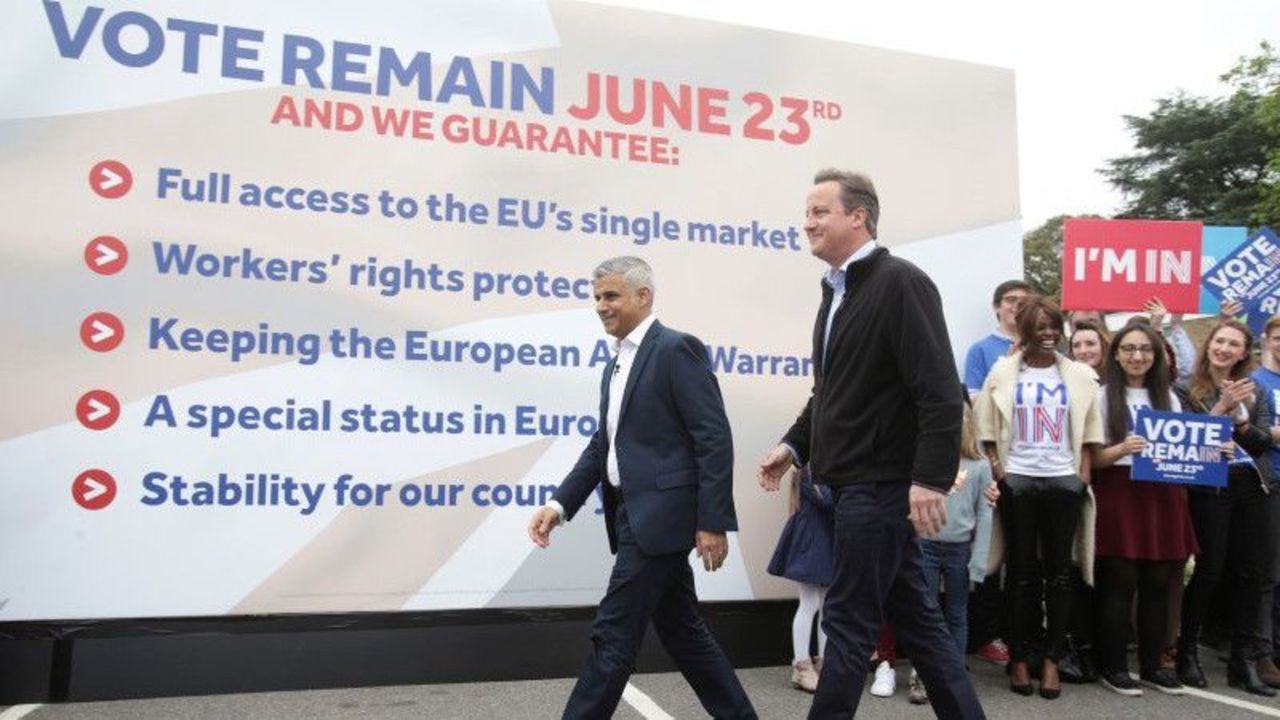
EDINBURGH – Can the United Kingdom ever reconcile itself to being part of Europe? If recent British newspaper headlines about the June 23 referendum on continued European Union membership are any guide, the answer appears to be a decisive “no.”
Proponents of leaving the EU have campaigned on fear of runaway immigration and a cascade of purported dangers – whether delivered by boat or bomb – to the British way of life. Their opponents, who want the UK to remain part of Europe, highlight another fear: the loss of jobs that are dependent on European trade.
The spirit of Dunkirk
The nonstop sloganeering around these platforms has exposed conflicting worldviews. The rhetoric of the “Leave” supporters conjures up the spirit of Dunkirk in 1940 – a nation standing alone, impervious to invading armadas and armies, and always fiercely independent of Europe.
In theory, the “Remain” campaign stands for a different Britain: outward-looking, engaged, and internationally minded. But the Conservative Party is bitterly divided on the issue, and many of its most prominent spokesmen have wilted under fire from a hostile Euroskeptic media. As a result, they often seem to be advocating for a half-in, half-out relationship with Europe – for a Britain that is semi-detached, rather than fully engaged. A positive, principled, and progressive case for British membership in the EU has yet to be made.
Positive arguments are the sharpest arrows in the quiver of those who want Britain to remain in Europe. Meeting the needs and aspirations of the British people in the twenty-first century requires us to let go of the past, acknowledge that the present is defined by globalization, and recognize that the future is filled with opportunity. Our increased interdependence suggests the need for greater international cooperation and coordination, and that is precisely what the EU offers.
Because “Leave” voters view globalization as a liability, they look for protection and insulation, demanding that “control” be brought back home. One recent, but not necessarily representative, poll found that 43% of those certain to vote favored bringing control back to the UK by leaving the EU – even if they were to become financially worse off as a result. Only 23% did not.
A casual observer could be forgiven for thinking that forging a post-referendum national consensus on a European future is impossible. But there is a way forward. We must start by recognizing that in an increasingly integrated and interdependent world, each country needs to strike the right balance between the national autonomy that it desires and the international cooperation that it requires.
Britain should not have to choose between two absolutes: total autonomy, which would undervalue the need to cooperate with our nearest neighbors, and complete integration into a European superstate, which would fail to recognize the continuing importance of national identities and decision-making.
Issue by issue, there is a way forward that will make both Britain and Europe more competitive, democratic, and accountable. If we can show that opportunity, fairness, safety, and security can be enhanced in Europe – and that we can be a proud leader of the EU’s reform agenda – a British consensus might begin to emerge.
Take the economy. By balancing autonomy and cooperation, Britain could create 500,000 more jobs during the next decade. Because it has not adopted the euro, the UK has retained the autonomy to set interest rates; but integration into Europe’s single market has yielded clear gains in terms of growth and employment. Similarly, if Britain were to lead efforts to establish a level playing field for digital, energy, and services – particularly financial services – it could ensure greater competitiveness for Europe as a whole.
Economic reforms are only the beginning. Britain can and should champion an agenda that confronts questions of energy efficiency (through an energy and environmental union), fair taxation (through a plan for dealing with tax havens), and security (through heightened cross-border intelligence gathering and policing against terrorism and illegal immigration).
Cooperation than isolation
The British blueprint for a reformed Europe should be bold and far-sighted, recognizing the social dimension to the single market and deepening pan-European collaboration in scientific research. By embracing the reality that we can achieve more through cooperation than isolation, such a blueprint could become the agenda for the UK Presidency of the EU in 2017 and usher in an era of greater cross-border engagement.
We could also use this moment of leadership to advocate for a more cooperative approach to international development and conflict resolution, including a modern European-led Marshall Plan for North Africa and the Middle East.
Britain has an opportunity to be at the forefront of shaping the next stage of Europe’s development. For the last, post-imperial half-century, Britain has struggled to find a role that suits our sense of destiny. Through active engagement with Europe, we can show that we are more than one half of a special relationship with America, more than one twenty-eighth of the NATO alliance, and much more than just one member of an ever-growing EU. On June 23, we should demonstrate that Britain’s future lies in leading Europe, not in leaving it.
(C) Project Syndicate

